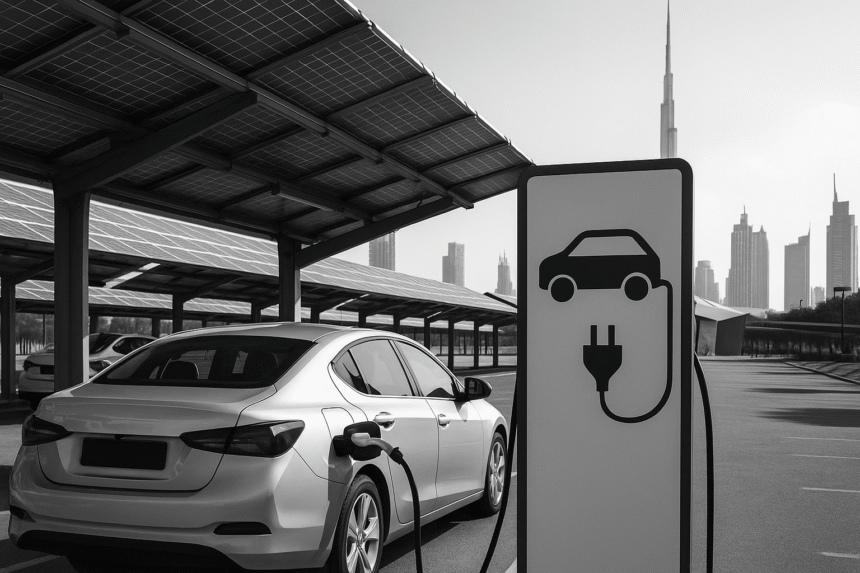Middle East Energy 2024: EV Opportunities and Highlights for Infrastructure Leaders
The Middle East Energy 2024 event marked a defining moment for the region’s transition toward clean mobility and sustainable infrastructure. Held in Dubai, this year’s edition not only showcased the latest in electric vehicle (EV) technologies but also highlighted critical shifts in government policy, cross-border partnerships, and private sector innovation.
For CEOs, infrastructure providers, and decision-makers involved in energy and transportation sectors, the event offered more than just exhibits—it delivered a strategic outlook on where the market is heading and where to focus your investments next.
Why Middle East Energy 2024 Mattered
Now in its 49th edition, Middle East Energy 2024 attracted over 1,200 exhibitors from 60+ countries, with a noticeable shift in focus from fossil fuels to electrification, digitalization, and mobility.
Key takeaways:
-
EV infrastructure was a central theme in all three energy zones (Smart Grid, Clean Energy, and Backup Power).
-
Major utility providers like DEWA and ADDC participated with updated frameworks for charger installation.
-
EV charger manufacturers and smart fleet platforms dominated startup pavilions and keynote discussions.
EV Projects Unveiled at the Event
Several high-impact EV-related projects were announced or advanced during the conference, reflecting growing confidence from both the public and private sectors.
Notable projects included:
-
DEWA’s Smart Mobility Expansion Plan: A target to double Dubai’s public charging stations by 2027, building on the Green Charger initiative.
-
Abu Dhabi’s Public Bus Electrification Program: With pilot routes and local procurement tenders expected in Q4 2024.
-
Saudi Arabia’s Cross-Gulf EV Corridor: Presented as part of a GCC-wide strategy, with initial routes connecting Riyadh, Dammam, and Dubai.
For infrastructure companies, these projects signal procurement opportunities and long-term demand for integrated charging solutions.
Strategic Partnerships and MOUs Signed
Middle East Energy 2024 was also a platform for significant commercial announcements that could redefine supply chains and project execution in the coming years.
Key EV-focused announcements:
-
CATEC & Huawei: A signed MoU to develop AI-powered charging station management software in the UAE.
-
ACWA Power & Lucid Motors: Collaboration to support EV production with sustainable energy and charger deployment.
-
Siemens & Dubai Municipality: A pilot program to digitize EV charger performance data city-wide using smart grid analytics.
Such partnerships underscore a growing trend—EV deployment is now a cross-sector challenge involving utilities, tech, logistics, and real estate.
Policy Shifts Following Middle East Energy 2024
The ripple effects of Middle East Energy 2024 are already visible in updated regulations and incentive plans announced post-event.
Key developments:
-
Dubai Municipality expanded building code provisions for EV-ready infrastructure in both public and commercial spaces.
-
UAE’s Federal Transport Authority announced a new policy mandating a minimum % of EVs in all future fleet procurement tenders.
-
ADNOC Distribution received fast-track permits for installing EV chargers at service stations across Abu Dhabi.
These changes demonstrate that policy support for clean mobility is no longer theoretical—it is actively being codified.
Business Implications for Infrastructure Providers
What does all this mean for your business?
1. Stay Tender-Ready
Upcoming projects will require updated compliance, from charger specifications to installation licenses. Make sure your company is aligned with DEWA, ADDC, and RTA standards.
2. Prioritize Smart Integration
EV infrastructure is becoming smarter, with expectations for real-time data, automated load balancing, and grid coordination. Suppliers that can offer digital capabilities will gain a competitive edge.
3. Invest in Local Presence
Many of the newly signed MOUs favor suppliers and integrators with a physical presence in the UAE or Saudi Arabia. Regional offices and joint ventures are increasingly a must-have for credibility and responsiveness.
Conclusion: 2024 Is a Pivotal Year
Middle East Energy 2024 has clarified one thing—EV infrastructure is no longer in the exploratory phase. Governments are moving fast, policies are evolving, and public-private partnerships are forming at scale.
If your business operates in construction, logistics, power, or mobility—2024 is the year to define your EV strategy, secure licenses, and prepare for a more electric future.



Leave a Reply